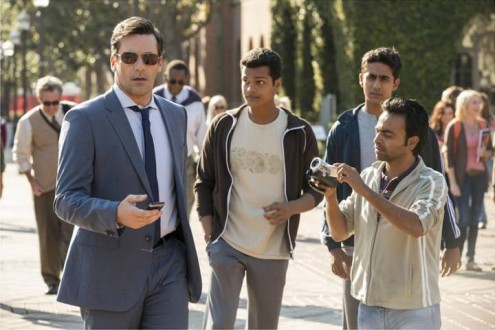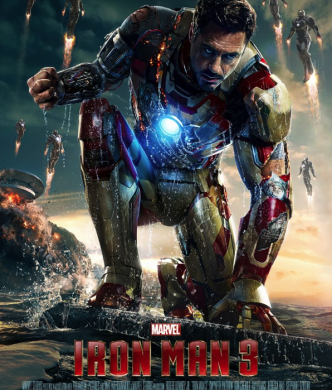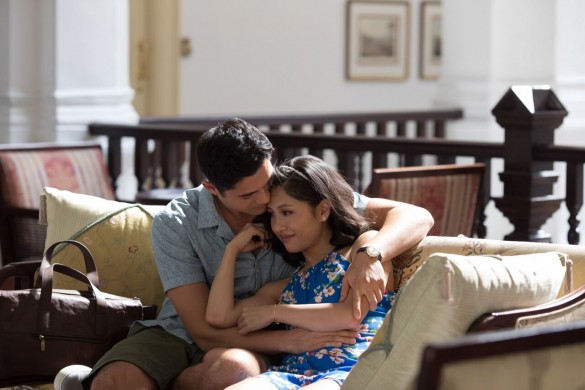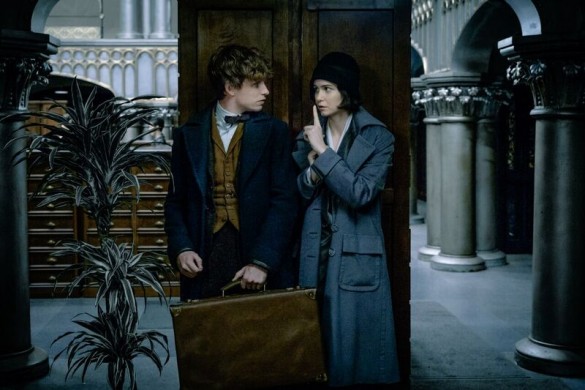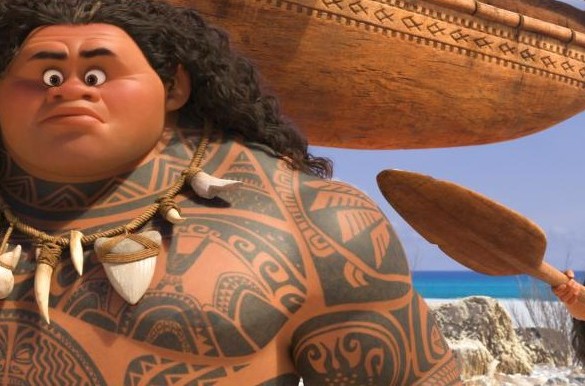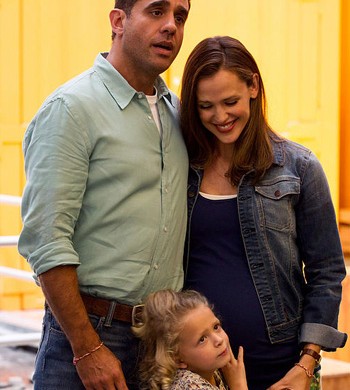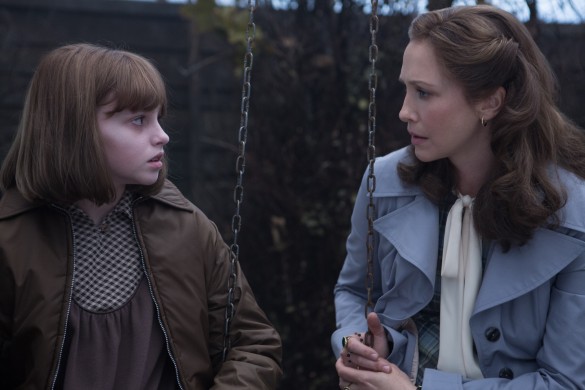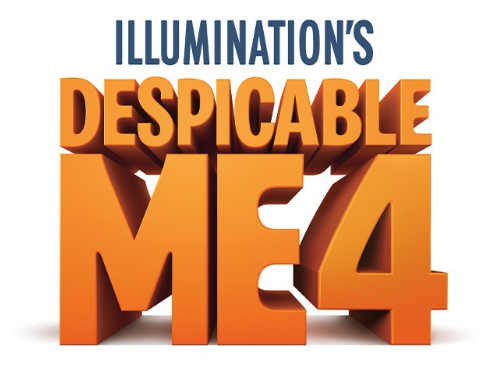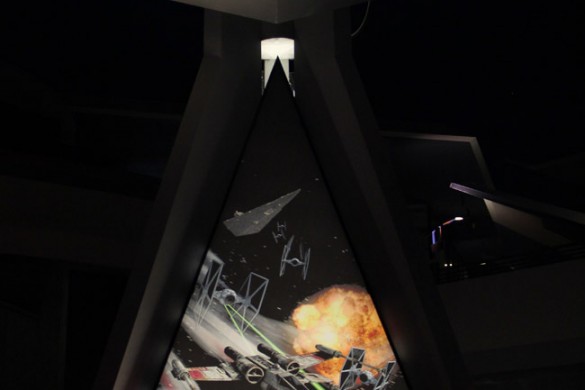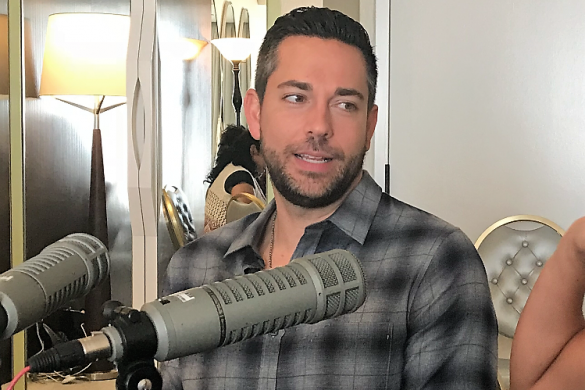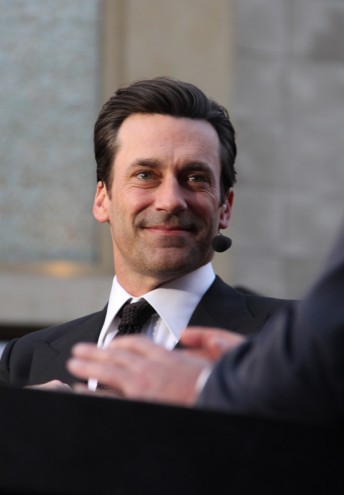 Jon Hamm (Mad Men) does a convincing job portraying sports agent, J.B. Bernstein, who struggles to make ends meet as he desperately tries to find the next pro athlete to sign in Million Dollar Arm. The film is inspired by a true story, following J.B. during his lows as he comes up with the MIllion Dollar Arm reality show and contest. I was one of 25 bloggers who caught up with Jon to talk about his role in the new Disney film. We chatted about filming in India and the need for multiple outfit changes, if he filmed concurrently with Mad Men and I also asked him what his favorite baseball team was which his answer disappointed me (he should’ve said the Red Sox!).
Jon Hamm (Mad Men) does a convincing job portraying sports agent, J.B. Bernstein, who struggles to make ends meet as he desperately tries to find the next pro athlete to sign in Million Dollar Arm. The film is inspired by a true story, following J.B. during his lows as he comes up with the MIllion Dollar Arm reality show and contest. I was one of 25 bloggers who caught up with Jon to talk about his role in the new Disney film. We chatted about filming in India and the need for multiple outfit changes, if he filmed concurrently with Mad Men and I also asked him what his favorite baseball team was which his answer disappointed me (he should’ve said the Red Sox!).
Q: Were you filming Mad Men at the same time as Million Dollar Arm and if so, how hard was it for you to transition from the TV show to the movie and if you had to fly back and forth.
Jon Hamm: We did not film concurrently. We wrapped season Six and went basically right into the Indian portion of the movie which we shot in, Mumbai. We wrapped in late April and then May, almost the whole month of May we were in India. I don’t think I could do that turnaround. I’m pretty good at, keeping things separate but that would’ve been rough. A sixteen hour flight from Mumbai to Newark and then shooting here in L.A. would’ve been rough.
Q : Once J.B. gets to India, we see him struggling with that heat. How was it for you to be there?
JH: Well it’s not just the heat. It’s literally, everything. I mean, it’s a completely different culture. The actual J.B. Bernstein, the guy I play, had to go through all this and figure out how to do business in this country and figure out how to manage all of this stuff. And there was no guarantee that it was going to work, at all. It was a huge leap of faith. I mean, if you speak to him now he’s fairly conversant in Hindi and he’s been doing it for six or seven years now so he’s very much comfortable in, Indian culture and this was the direct result of this experience that he had.
So yeah, It was a full on, immersive experience. It was hot. So much so that even our Indian crew were like, “What, what do you do about this stuff?” “Well, we don’t shoot in May. You you guys are idiots. Like, the only ones who shoot in May are Americans. We go inside.”
Q : The story is so inspiring. How did you get involved in the film?
JH : I met with Mark Ciardi and Gordon Gray who are the producers of the film. They produced The Rookie and Miracle. So I was familiar with their work and liked not only the kinds of movies that they made but the stuff that they’ve done with Disney. I read the script and I know Tommy McCarthy who wrote the script and I’ve been a big fan of his work as well and was really impressed with the script. I did not know it was a true story at the time. It somehow escaped my fairly detailed baseball radar. I am a big baseball fan, but I hadn’t heard of it. And so I kind of Googled around and looked up some stuff and I learned about it. I thought well this could not only be a fun project to work on as an actor but just a fun — I mean we get to go to India and that could be an interesting experience too. I’m very, very glad I did. We’re tremendously proud of the film and also I made some really good friends on it.
Q : Who’s your favorite baseball team?
JH: Well, that’s an easy one. I am born and raised in Saint Louis Missouri so the Saint Louis Cardinals are hands down my team.
Q : What would you say is the major difference of acting for television and acting in a feature film?
JH : It depends. I would suggest that maybe doing a pilot for a TV show is very similar to acting in a movie. Most of the things when you’re doing episodic television, you kind of know what works. Especially a show like ours that’s been on, six seasons. You’re comfortable with the character, you know what the audience likes and you know what the story’s going to be in somewhat shape or form.
A film you’re kind of creating out of whole cloth. Obviously there’s a script there and it’s been developed and people have weighed in on it and the studio’s got notes and everyone’s got notes and you make your decisions accordingly to try to tell that story as best you can. But, there’s no guarantee. There’re been tons of movies that you’ve been excited to come out and you think, ‘oh, this is gonna be great’ and it’s got my three favorite people in it and I love that director and the studio’s had nothing but hits. And then you watch it and you’re like, it kind of didn’t work, did it? You just don’t know, sometimes the soufflé just falls.
Generally making films is a much slower pace. Television you’re shooting seven, eight, nine pages a day. Simply because you have to. Production schedule is that tight. Movies, not so much. Although this one we, there were days when I had probably thirteen costume changes in one day. And I don’t wear a lot of crazy costumes in this movie. So it was like a different Polo and a different hat.
But we had so little time and we were kind of hamstrung by weather and light and location and all this other stuff that we really had to jam it all in. But that’s service to Craig Gillespie, the director or the film, who was, the Energizer Bunny and completely was our leader and was inspiring to work for. So props to him.
Q : Do you think there was more pressure on you as an actor to portray somebody like a character based on a true story?
I would suggest maybe if it was somebody that a lot of people knew. There’s probably a little more pressure on Daniel Day Lewis playing Abraham Lincoln although no one around really knows him anymore. But no, I felt very responsible towards, J.B., especially after having met him and learning his story and learning how profoundly this experience changed his life. We tried to tell that in the film. This actually happened to the guy.
The guy’s life was really changed for the better because of this experience. And he did not set out to have some sort of life changing experience. He just wanted to make money and sometimes that happens. You know, unexpectedly you just all of a sudden find yourself, affected by things and that’s J.B.’s story. So I felt very close to that and I didn’t want to misrepresent him at all. But he’s given me his stamp of approval.
Q: Has filming this movie and traveling to India changed your life in any positive ways?
JH: I think all travel in general, should be, life affirming and eye-opening in some way. This was certainly no exception. I’d never been to Asia much, much less India specifically, so I had no concept of what I was going to see. I mean, we’ve all seen photos of the Taj Mahal and the this and the that but it’s like every travel experience. When you actually get there and you’re there in person it’s in 3D. And it’s the sights and smells and the heat and everything else that makes the experience even more worthwhile. I can’t point to anything specifically where I had an epiphany about life, the universe and everything but I did very much enjoy it. I would totally go back in a heartbeat. And it’s such a big country with so many influences that I saw like the tip of the iceberg of. So I’d love to go back.
Q: What was your favorite part of the movie and why?
JH: There’s a couple parts I think. Most of the stuff we shot in India was pretty great to film because we were in the dirt and it was really exciting. But there’s a scene, it’s toward the end of the film that I actually really liked shooting as well that’s much more from an acting standpoint. Which is basically when the kids throw J.B. his sort of we’re bringing India to you and they have that nice party.
And he realizes that he’s, that they’re somehow feel like he’s disappointed in them. And, the honest truth, J.B. tells this story as well, is that he felt such responsibility for these kids by that point in their life and their career that the idea of him disappointing them somehow was soul-crushing to him. He’s like, you could never disappoint me. That’s impossible.
He’s their dad at that point, you know, a surrogate dad. The boys are so wonderful in the film and they bring such, heartfelt warmth to these characters that the emotion is really what helps to carry the film. it could be just another movie about sports and feel good and this and that but the emotion that the boys bring to their parts really does carry it into a different world.
Q: How do you feel that this film is set apart from other sports films that have come along?
JH: I think like all good… most good sports films, it’s not necessarily all about the sport. I think if you look at something like The Natural. Ostensibly that’s about baseball or a baseball player. But it’s really about this guy and his life and how it was changed and how it was interrupted and then he got to come back and fall in love and all that other stuff. That’s a movie that I’m a mess by the end of it.
This movie is like that. It’s a family movie but it’s set against the backdrop of sports, in particular baseball. It would be a disservice to it, I think, to just say it’s a baseball movie because, for me, it means so much more than that. That’s kind of one of the reasons why I wanted to do this film. It just felt richer than just a game where I hope they win the big game at the end. So I hope this is what we brought, through the making of it.
* I attended an all-expense paid press trip courtesy of Disney/ABCTV/Disney XD. The review is in our own words and is our opinion. All Photos Copyright @ That’s IT Mommy/Tee Burgess.

